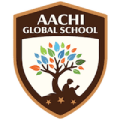The educational paradigm in India is defined by its multifaceted nature, reflective of the nation's vibrant diversity. India's educational landscape shines brightly with its vast infrastructure, comprising around 1.49 million schools, supported by the expertise of 9.5 million teachers and an astounding enrollment of nearly 265 million students.
Parents have various types of education boards in India to choose from, and the educational landscape has experienced significant transformations, introducing innovative methodologies within schools. The focus remains on delivering high-quality education to students of all age groups.
In this insightful blog post, we'll explore a reliable list of education boards in India and analyse which one emerges as the finest in India to help you select the most suitable option for your child.
Admissions for 2025-26 are now open at AGS Anna Nagar and Ayanambakkam. Enrol today!
Understanding the Significance of Education Boards in India
Parents often wonder: Which education board is best in India? This decision holds immense importance as it shapes their kids' entire academic journey. Education boards in India shape learning standards, curriculums, and frameworks, moulding a child's learning experience.
Beyond rote memorisation, education should ignite curiosity, nurture a passion for learning, and develop problem-solving abilities. Thus, opting for the best education board in India cultivates these qualities, facilitating holistic growth.
Different Types of School Education Boards in India
1. Central Board of Secondary Education (CBSE)
In today's educational realm, CBSE holds the distinction of being the most extensively recognised and the best education board in India. It has effectively created a standardized educational structure for a large proportion of schools across the country. CBSE provides a standardised curriculum spanning all states.
With English and Hindi as primary mediums of instruction supplemented by regional languages, CBSE's syllabus is characterised by its relative ease in comparison to other educational boards in India, incorporating a blend of theoretical concepts and practical applications.
Under the jurisdiction of the Union Government of India, CBSR manages and regulates both public and private schools across the nation. With affiliations extending to over 27,000 schools in India and 240 schools in 28 foreign countries, it has a vast network of educational institutions, which makes it occupy the NUMERO UNO position in this list of education boards in India.
Conducting continuous comprehensive assessments from classes VI to X, CBSE employs a grading system for assessment purposes. The final exams for class X and class XII are conducted by CBSE every March.
AGS stands out as the best CBSE school in Chennai, India. Renowned for its academic excellence and nurturing environment, we provide the perfect foundation for your child's future success. Admissions for 2025 are open now. Enroll now and unlock a world of endless opportunities for your child's education!
2. Cambridge Assessment of International Education (CAIE)
As a branch of the University of Cambridge, Cambridge Assessment International Education (CAIE) operates globally, catering to over 10,000 schools spanning 160 countries. This international education board in India offers Cambridge primary (ages 5–11) and lower secondary (ages 11–14), preparing students for IGCSE, covering diverse subjects, and fostering active learning.
IGCSE (ages 14–16) is a globally recognised qualification by CAIE. It precedes Cambridge Advanced (A Levels, Pre-U) programs (ages 16–19), promoting specialisation and critical thinking. Cambridge AS/A levels provide further opportunities for students to delve into specific subjects of interest, with the flexibility to pursue standalone or combined certificates.
With an emphasis on English language proficiency and encouraging creative expression, CAIE has become an inevitable one on this list of education boards in India. Many students pursuing this curriculum harbour ambitions of seeking admission to foreign universities.
AGS, Chennai's top Cambridge school, prides itself on academic excellence. Our commitment promotes critical thinking and deep understanding, fostering holistic development. Enroll now; admissions are open for 2025!
3. State Boards
Among the types of boards in India, State Boards occupy a prominent position in our educational sector, distinguished by their state-specific curricula and grading frameworks. Focusing on subjects relevant to each region and incorporating regional content, these educational boards in India allow students to excel in state-level professional and healthcare exams.
The state's regional language and English serve as the medium of instruction in state board schools. The Department of Education formulates the syllabus under the government’s supervision. Students who hail from the state have a competitive advantage in opting for this educational board in India.
4. Indian Certificate of Secondary Education (ICSE)
Providing a comprehensive curriculum rooted in foundational principles and concepts, the Indian Certificate of Secondary Education (ICSE) program stands out as one of the most practical educational boards in India.
Supervised by the council of the Indian school certificate examinations, this private school education board in India is dedicated to conducting educational assessments on the recommendations outlined in the new education policy of 1986.
ICSR opts for English as its primary instructional language, emphasizing practical learning approaches over memorisation-based techniques. It offers a diverse range of subjects and extracurricular opportunities to promote student excellence.
5. The National Institute of Open Education (NIOS)
The National Institute of Open Education (NIOS) aims to establish an educational system that caters to the needs of all children, ensuring adaptability and accessibility.
Positioned alongside numerous student-friendly educational boards in India, it empowers individuals to actively shape their learning experiences by determining what to study and when or how to learn.
NIOS operates as a national educational board, conducting intermediate and post-secondary exams akin to CBSE and CISCE and offering collegiate education beyond high school.
6. International Baccalaureate (IB)
The International Baccalaureate (IB) functions as a non-profit academic entity, holding a prominent position among the elite educational boards in India and enhancing educational prospects for children aged 3 to 19.
IB schools are revered, albeit associated with higher costs. The organization presents three fundamental programs: the primary years (KG to class 5), the middle years (class 6 to class 10), and the graduation program (class 11 and class 12).
7. Council for the Indian School Certificate Examinations (CISCE)
The Council for the Indian School Certificate Examinations (CISCE), established in 1958, operates as a privately held national-level education board in India.
It usually governs the Indian Certificate of Secondary Education (ICSE) and Indian School Certificate (ISC) for classes 10 and 12, respectively.
Constitutionally recognized as a non-governmental board of school education, it has more than 2,300 schools in India and abroad under its affiliation.
The curriculum is designed to invest practical and application-based knowledge while nurturing analytical thinking among students.
Some teachers and students find the CISCE curriculum to be quite extensive and demanding, thereby making it one of the toughest education boards in India.
8. Indian Board of School Education (IBOSE)
The Indian Board of School Education (IBOSE), formed in 2007 under the S.R. Acts XXI of 1860 by the government of India, operates as a private educational entity. It aims to provide accessible education in remote parts of India.
It sets the curriculum, individual courses, and textbooks for private schools nationwide. It caters to senior secondary students, offering streams in commerce, science, and the humanities.
Which Education Board Is Best in India? CBSE Vs IGCSE Vs State Boards
1. Curriculum Alignment and Teaching Styles
CBSE: CBSE, as the best education board in India prioritises fundamental knowledge and analytical prowess with a centralised curriculum, employing a mix of traditional and technology-based learning.
IGCSE: IGCSE promotes critical thinking and practical learning through its globally applicable syllabus.
State Boards: State boards offer region-specific curricula, balancing theory and practice with a regional language and cultural focus.
2. Board Recognition and Higher Education
CBSE: Indian universities widely acknowledge CBSE, making it a preferred selection for students aspiring to enrol in domestic colleges. In addition, this education board's recognition extends to various international universities, enriching its appeal for students pursuing global academic opportunities.
IGCSE: Students with an IGCSE background typically experience streamlined admission procedures in international universities, facilitating their pursuit of higher education opportunities internationally.
State Boards: State board certificates are accepted regionally but lack the global recognition of CBSE and IGCSE.
3. Analysing the Medium of Instruction
CBSE: CBSE schools use English as the main medium of instruction, with regional languages available as secondary options in some schools.
IGCSE: IGCSE schools predominantly use English as their primary instructional language, with a strong emphasis on enhancing students's language proficiency.
State Boards: The official language of the state serves as the language of instruction in state board schools, with English offered as a secondary language.
Conclusion
In choosing the right types of education boards in India for kids, parents embark on a crucial decision-making journey that shapes their children's academic paths and career trajectories. CBSE offers standardised national recognition; IGCSE provides an internationally recognized curriculum; and state boards prioritise regional inclusivity.
Ultimately, the chosen education board must align with student interests and future goals. However, beyond board selection, a nurturing learning environment, dedicated teachers, and parental involvement are vital for holistic student development.
Aachi Global School (AGS) in Chennai offers world-class education through globally recognized Cambridge Assessment International Education and CBSE curricula. Elevate your child's educational experience with Aachi Global School.
Join our vibrant community where students thrive academically and personally equipped with compassion, integrity, and essential skills for success in a globalized world. Enrol your child today at AGS to secure their place in shaping the leaders of tomorrow!
FAQs
1. Which is the most popular education board in India?
CBSE stands out as the most preferred and best educational board in India, dominating the educational landscape in 2025. Enrolling your child in one of the top CBSE schools in Chennai, like Aachi Global School, ensures your child receives the best and highest quality education.
2. Which education board is best in India?
While educational preferences are subjective, CBSE, CAIE, and state boards emerge as the top choices of education boards in India among students and parents. These types of educational boards in India cater to unique curricula and learning approaches, ensuring a tailored educational experience for each student.
3. Which education board in India should I prefer if I want to pursue higher studies abroad?
Enrolling your child in schools affiliated with types of education boards in India like the CBSE, CAIE, or IB will give you an opportunity if you're on the lookout for overseas education for your child.




